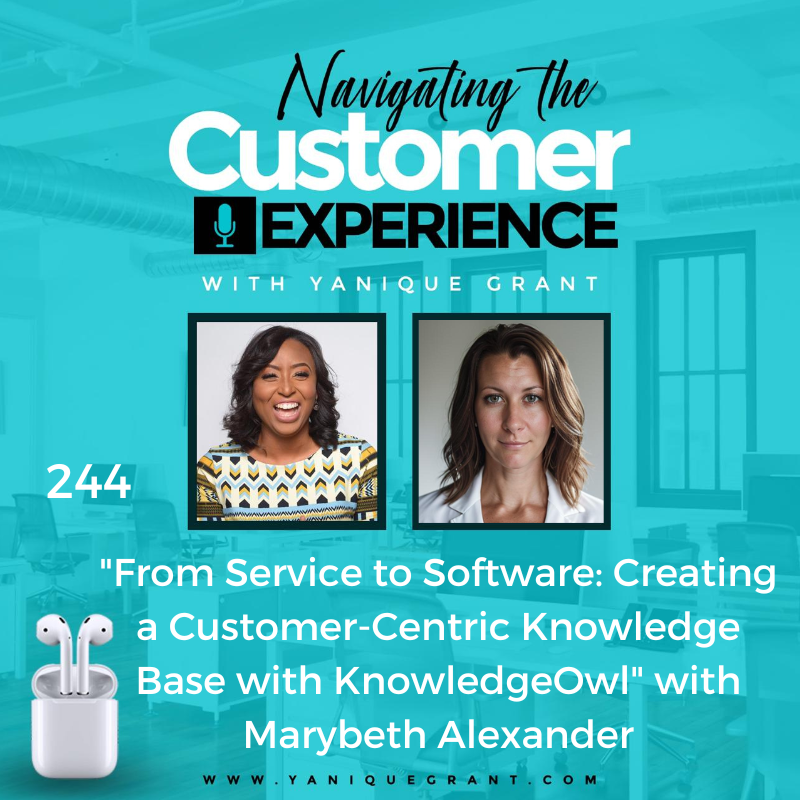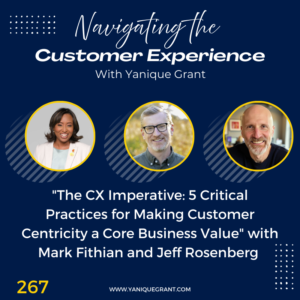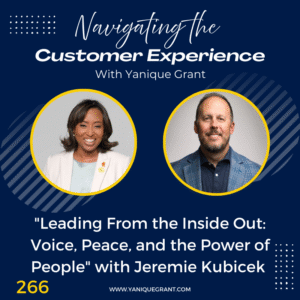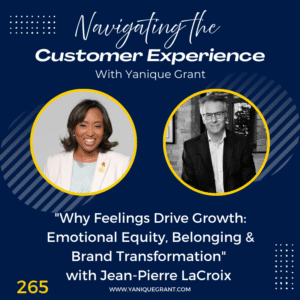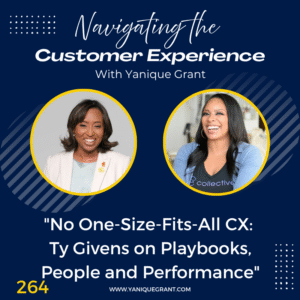Marybeth Alexander has been the Knowledge Goddess and Chief Executive Owl at KnowledgeOwl since she co-founded the company with Pete in 2015. As KnowledgeOwl’s CEO, she’s responsible for embodying KnowledgeOwl’s mission and values, which include using business as a force for good, cultivating a people-first company, giving excellent service to everyone, and creating awesome knowledge based software.
Questions
· We always like to give our guests an opportunity to share in their own words, a little bit about their journey. So, if you could share with our listeners just a little bit about how you got from where you were to where you are today.
· Could you share with our audience what exactly is KnowledgeOwl, and what do you do on a daily basis?
· What are some of the successes that you’ve experienced as a CEO of an organization of this nature, and if you were to predict where you see customers experience going in another 3 to 5 years, based on where the technology is currently, what are some of your predictions where that’s concerned?
· Now, Marybeth, can you share with our listeners, what’s the one online resource, tool, website or application that you absolutely can’t live without in your business?
· Can you also share with our listeners, maybe one or two books that you’ve read, it could be a book that you read a very long time ago, or even one that you’ve read recently that had a great impact on you, and it could be an impact that affected you personally or professionally.
· Now, can you also share with us what’s the one thing that’s going on in your life right now that you’re really excited about, either something you’re working on to develop yourself or your people.
· Where can listeners find you online?
· Now, before we wrap our episodes up, we always like to give our guests an opportunity to share with us a quote. So, do you have a quote that during times of adversity or challenge, you’ll tend to revert to this quote if for any reason you get derailed or you get off track, the quote kind of helps to get you back on track. Do you have one of those?
Highlights
Marybeth’s Journey
Me: Now, we always like to give our guests an opportunity to share in their own words, a little bit about their journey. So, if you could share with our listeners just a little bit about how you got from where you were to where you are today.
Marybeth shared that she’ll try to do the short version of this. So, she just loves helping people. All of her jobs are her favorite, her favorite jobs have always revolved around people. She loved being a camp counselor, she was a teacher. She also really loved working in hospitality. She loved working at restaurants and bartending and serving folks. And then she transitioned into software support, and she loved helping people there too.
So, she got into software. She was a teacher for a while, and then she transitioned into software, which was actually a pretty good transition, because a lot of the same skills that make you a good teacher for kids also makes you good at doing software support for adults.
So, she grew her leadership in that realm, and she went from being on the support team to being a team lead, to a manager, to a director, and then she got this little opportunity to head up a product, which was a knowledge based product, it was called Help Gizmo at the time.
And she took that opportunity. I was basically like the product owner or manager of that product, and they brought it to market, and then that company didn’t want to continue that project, so they ended up giving them the opportunity to buy it, and that is how she accidentally ended up as the CEO of a software company.
She likes to call herself an accidental entrepreneur, because she didn’t start out that way, but as luck would have it, she got the opportunity, and now it’s been almost 10 years.
What is KnowledgeOwl?
Me: Now, Marybeth, could you share with our audience what exactly is KnowledgeOwl, and what do you do on a daily basis?
Marybeth shared that KnowledgeOwl, they call it knowledge based software, but it was essentially, what knowledge based software is, is a specific type of software that allows you to create a website to share information with whoever your audience is, that is often times your customers.
So, a lot of people use them for their help center and documentation for their software products, but they also sometimes use it for their products for their customers, they have airlines who use them for their help and FAQs, for their customers on their website.
They have customer service teams that use them as a knowledge base for their call center agents. They have lots of companies that use them as their internal knowledge base for all of their playbooks and policies and procedures. So, pretty much what they do every day is help people with these knowledge based websites that help them help their customers, whoever they might be.
Me: I think knowledge base is an extremely good thing for customers, because I do find if a customer has an issue, they tend to do their own troubleshooting first before they actually pick up the phone and call a company or even reach out to a representative at a company. So, if you have a strong knowledge base, you’re actually empowering the customer to fix the problem themselves.
Marybeth agreed totally yes, most people do not want to contact your support team, there are a small percentages of people that do, but most people want to be able to self-serve. And when we’re talking about giving your customers a great experience and giving them great customer service, a big part of that is allowing them to get help the way they want to get help, and most people would prefer to do it themselves.
Me: So, walk me through, let’s choose an industry, let’s say, for example, an automotive industry. You sell motor vehicles, for example, and you are trying to create a knowledge base for your team members, so this would be internal with let’s say product knowledge, or just general information that customers may call and ask about frequently. Is it that they have to document the information and then give it to you, and you feed it into the knowledge based software, or is that something that you provide for them as well, the research and the documentation that is fed into the knowledge based software?
Marybeth shared that they basically provide the software tool for them. So, their customers like, let’s say this automotive, this car service company or automotive company, they would purchase KnowledgeOwl and then somebody on their team would be the one that would put all the content in. So, often times this could be a manager of a team, sometimes you have somebody whose job it is to do like documentation or training, but often times it is like the support team itself, like the people doing the work, they will go in there and document the answers to questions, because on many support teams, you know what team leads end up doing, or like the advanced folks on the team that have been there for a while, is they end up being the go to person and having to answer the same questions over and over again for the other teammates.
So, rather than just answering those same questions over and over again, those people will go to the knowledge based software create a document that says, here’s information about this automotive vehicle, here’s information like a frequent process that we use. And here’s how to do this for the customer, and they’ll write it down, so that way their teammates can then reference that or look for it in the knowledge base and get the answer without having to ask them.
So, it speeds up the process and the not just internally, but also it helps the customers get answers faster, because the teammates can find the information they need to help the customers faster.
Me: And your knowledge based software facilitates different formats, so, for example, it could be an audio file, it could be a video file, it could be just a document that the customer is reading.
Marybeth stated exactly. So, it’s basically a website. She likes to tell people, pretty much anything you can put in a website, you can put it inside KnowledgeOwl.
So, a lot of times it’s going to be text. So, a lot of times it’s processes, it’s procedures, it’s information. But in terms of training in like a video format, you could have audio files in there. You could even like host files. So, if you need to have, like a PDF document or a forum that you need to print and give to a customer, you can store those in the knowledge base as well to make it easy for people to find, print, download it and use that information.
So, essentially, a knowledge base can become sort of the single source of truth for your team. So, rather than having to remember where this forum lives, or where that procedure lives, or where the information about like that car lives, it’s all in the same place, so that people can search one place and go to one place to find all of the information they need to do their jobs.
Me: And if the organization already has their own website, Mary Beth, is it that knowledge base has some form of feature that integrates into what they have already, so you live on their server that exists? Or do they have to host their website now through your website?
Marybeth shared that it’s not their whole website. So, a knowledge base is typically a separate website. So, you might have your website, which is like www.likemyamazingcompany.com and then you might have your knowledge base for your customers, and that might be on help.myamazingcompany.com or support.myamazingcompany.com so it’s actually a separate website that people can go to that is either public or it could be behind a login, because sometimes you only want your logged in customers to access it, or especially if it’s an internal knowledge base, you probably only want your employees accessing all of your internal company information.
So, it’s often times a separate website. But there are ways you can integrate the knowledge base into your main website if you want to. They have an embeddable help widget, some people go a little bit more advanced with that, but generally it’s a separate, standalone website that complements the information on your regular website.
Predictions for Customer Experience in the Next 3 to 5 Years
Me: Now, since you’ve been in this operation for about 10 years you mentioned earlier, what are some of the successes that you’ve experienced as a CEO of an organization of this nature, and if you were to predict where you see customers experience going in another 3 to 5 years, based on where the technology is currently, what are some of your predictions where that’s concerned?
Marybeth shared that in terms of successes, her successes are all going to be people based because I think, like you, she was looking at Yanique’s website, it’s for her, it’s all about the people, and giving people a great experience and making sure that not only, like their customers are having a great experience and love working with them and love using their software, but also that the people that work with them, like their staff members are having a great experience working for KnowledgeOwl too and their vendors who are having a great experience working with them as a company.
So, for her, like the biggest success has been building a community of not just customers, but staff members and team members and other vendors and organizations, a really supportive community that cares about each other. But in terms of looking forward in the industry, it’s a very interesting time; especially with the word that is on everybody’s mind right now is AI.
So, everyone is talking about chatbots, right? So, everybody wants to talk about how they can make a ChatGPT for their company and their customers, and they can automate more of your customer service and their customer experience.
But for them and who knows what it’s going to look like in 3 to 5 years, because the landscape is changing so fast. But what she does strongly feel like is having your company knowledge documented, like having your product, your services, everything in a knowledge base is now more important than ever, because especially with AI, the only way that AI learns is by getting trained.
And one of the best ways to train your AI is to have all of your policies, your procedures, your documentation about your company, your product and your services and your processes written down so that the AI can learn.
So, she thinks what we’re going to see over the next 3 to 5 years is even more formal focus on creating and maintaining great documentation, which for many companies, that’s always been really important.
So, like most business books you’re going to read at the end of the day, the magic secret to like growing your business is to document everything right and to document all your policies and procedures and processes so that you can scale your company, and other people can do what you do.
And that’s always sort of been the not very sexy, but honest truth about what great companies look like as they have their policies and procedures and everything well documented. But she thinks what we’re going to start to see is that not only are people going to be creating like great documentation for customers and creating great documentation for their teams internally, but they’re going to be creating documentation for AI tools as well.
Me: I think that’s a very good point that you just brought across the fact that the knowledge base can train the AI, because a lot of times I find that even with chatbots that are attached to organizations, you may start the conversation to resolve an issue, but the bot can answer maybe just the very basic question. And so, a lot of times when I talk to people, they mention that they don’t even entertain the bot because they know that they’re not going to get the answer they’re looking for so they automatically tell the bot they’d like to speak with a live representative, or an agent for the conversation to end with the bot and actually be talking to a live human being in the chat. But maybe that could mitigate the intervention of live agents or representatives if it is that the bot is, as you mentioned, trained fully by the policies that have been documented and simple questions that maybe is embedded in your website, or maybe the customer is not able to quickly identify, the bot can say, “Okay, this is the policy or this is the rate for this,” or whatever the information is as it relates to the organization, again, minimizing the customer having to reach out to someone and speak to them in person or live.
Marybeth agreed and shared that she thinks what’s going to be the sort of people of this is we’re going to get to a point, probably here in the next 3 to 5 to 10 years, where you might have trouble telling whether you’re talking to a real human or a bot. So, think about like the chats on website. So, a lot of bots, you can tell they’re a bot because they tell you that they’re a bot and it’s very simplistic, but the more conversational bots, like, if you’ve had a chat with ChatGPT, like it’s conversational, it can go back and forth with you, you can have an ongoing conversation that builds upon what you were previously talking about.
So, she thinks there is going to be a lot, and it’s already starting. There are a lot of AI customer enablement tools, customer service enablement tools that they’ve been testing, and they’ve seen other companies using that learn from your knowledge base and your past emails and conversations, what your tone is, how you usually respond, what the correct answer is most likely to be. And there are these tools out there that right now, if they’re confident, they can actually reply as an agent would, versus having the agent actually do it. And there’s a lot of companies that are very nervous about that with good measure, because we don’t want people giving out bad information.
But the agents are suddenly becoming, they’re just double checking before the bot sends their answer, but the bots actually writing everything and creating the response and then having that engagement. So, she thinks we might get to a point where sometimes it might be hard to tell whether it’s a real person or not.
App, Website or Tool that Marybeth Absolutely Can’t Live Without in Her Business
When asked about an online resource that she can’t live without in her business, Marybeth mentioned if it’s cheating to say KnowledgeOwl?
KnowledgeOwl is interesting because that is where they document not just everything about their products. They have their customer facing knowledge base, which they use to understand how their product works and their customers do as well. But they have all of their internal company documentation in KnowledgeOwl as well. But as a team, they’re a remote team, so they’re 100% remote, they’re distribute everywhere.
So, their team relies a lot on Slack to connect with each other and have like an online space where they all can all exist and not just talk about work but talk about life and interact with everybody. And it’s that necessarily that Slack is that important, because if Slack wasn’t there, they’d probably be using Microsoft Teams or some other tool to do that collaboration. But having collaborative, like a space for your team to collaborate together and help each other out and just sort of be together and care for each other as humans is really important, especially we move into an age where there’s like less in person interactions and support teams and customer services teams are often going to be distributed. She thinks having that space is really important.
Books that Have Had the Biggest Impact on Marybeth
When asked about books that have had a great impact, Marybeth shared that she’s actually going to give you three. So, yes, she’s got three for you. So, number one, it was Zingerman’s Guide to Giving Great Service, and she probably first read this about 15 years ago, someone gave it to her, and she said, “What does this have to do? I’m running a software company support team. This is a food service book.” And she read it, and it was the first time that she actually saw someone be able to define the steps to actually giving great service and the steps to actually handle a complaint. And it might have seemed really simple at first, but she has been using the same framework for about 15 years now, and it really works. So, it was the first time she was able to take something that was very conceptional, like great service, and actually give someone a process to follow. So that’s number one, is Zingerman’s Guide to Great Service.
A compliment to that is Zingerman’s Guide to Good Leading, it’s a series of books. There’s one on building a great business, there’s one on being a better leader, there’s one on managing ourselves, and another one’s about the power of beliefs in business. And these books and series of books have really influenced her whole philosophy about the type of company she wants to build, about the types of teams she wants to build and how she wants to treat people. So, those have been really important to me.
And then her third one, which is more for the business owners or the team leaders on here, but it is Buy Back Your Time by Dan Martell, it came out last year or the year before, but it has been life changing for her, and sort of organizing her life and figuring out how to grow herself as a leader.
What Marybeth is Really Excited About Now!
When asked about something that she’s excited about, Marybeth shared that she thought about this one a little bit, and this might sound a little bit wild, so she’s like a customer service person at heart. Like, support is her jam, she loves customer service, but what she’s really excited about right now is sales and marketing. The reason she’s very excited about sales and marketing is because she’s done a complete 180. When she first started KnowledgeOwl, she thought sales and marketing were bad words, she thought they were icky. They did not have anybody doing sales and marketing, a dedicated team, and they grew their company to this point without really focusing on sales and marketing, because they thought it was something sort of gross, like, she’s a support person, she likes helping people, and she sort of see sales and marketing, or she used think about sales and marketing as sort of this other thing that businesses had to do, but it was sort of gross.
And what she’s realized recently is that sales and marketing can be done good, or it can be done poorly like many things, it’s just a tool, and if we think about it through the lens of customer experience and customer service, and how do we add more value for our customers, and how do we give them a better experience in the world?
And how do we do more good, then sales and marketing become a really interesting skill to learn and problem to figure out, because she thinks they can do it in a way that is true to their values. And it’s very people centered and is very helpful and is very centered in service. And it’s a totally new area for her. So, she’s getting to learn, she’s getting to apply all of her learnings and feelings about customer service and experiences to the realms of sales and marketing, and she’s really excited to figure it all out with her team.
Where can listeners find Marybeth online?
LinkedIn – Marybeth Alexander
LinkedIn – KnowledgeOwl
Website – www.knowledgeowl.com
Email – marybeth@knowledgeowl.com
Quote or Saying that During Times of Adversity Marybeth Uses
When asked about a quote that she tends to revert to, Marybeth shared that she has many of those. She loves a good mantra. And she thinks her favourite one that she keeps returning to, and she writes it down a lot is….Enjoy yourself.
And to her, it’s a quote from a song that she really likes. But in times of adversity, when things seem to her not going well, when she feels like she’s unmoored or a little bit lost, remembering that life is short and that it’s shorter than we think, and to remember to enjoy ourselves, and it brings her back to her why. It brings her back to her purpose, and it really helps her to refocus things. So, it brings her back to that positive frame of mind. So, enjoy yourself.
Me: So, Marybeth, just want to extend our gratitude to you for taking time out of your very busy schedule and jumping on our podcast with us today. Conversation was amazing, just learning about Knowledge Owl, and just learning about the impact of a knowledge base and the future of customer experience as it relates to integrating the knowledge base into our different platforms and allowing the customer to be able to self-serve and resolve their issues that much quicker and get information at the tip of their fingers. So, I think it was really insightful, I hope that my listeners gained as much insight from it as I did. I thought it was wonderful, and I just want to thank you so much for sharing with us today.
Please connect with us on X @navigatingcx and also join our Private Facebook Community – Navigating the Customer Experience and listen to our FB Lives weekly with a new guest
Links
• Zingerman’s Guide to Giving Great Service by Ari Weinzweig
• Buy Back Your Time: Get Unstruck, Reclaim Your Freedom, and Build Your Empire by Dan Martell
The ABC’s of a Fantastic Customer Experience
Grab the Freebie on Our Website – TOP 10 Online Business Resources for Small Business Owners
Do you want to pivot your online customer experience and build loyalty – get a copy of “The ABC’s of a Fantastic Customer Experience.”
The ABC’s of a Fantastic Customer Experience provides 26 easy to follow steps and techniques that helps your business to achieve success and build brand loyalty.
This Guide to Limitless, Happy and Loyal Customers will help you to strengthen your service delivery, enhance your knowledge and appreciation of the customer experience and provide tips and practical strategies that you can start implementing immediately!
This book will develop your customer service skills and sharpen your attention to detail when serving others.
Master your customer experience and develop those knock your socks off techniques that will lead to lifetime customers. Your customers will only want to work with your business and it will be your brand differentiator. It will lead to recruiters to seek you out by providing practical examples on how to deliver a winning customer service experience!

